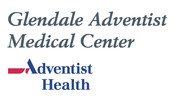|
|

|
« Back
Double Nerve Block for Added Pain Control after Total Knee Replacement
|
Posted on: 10/12/2003
|
More and more studies show that controlling patients' pain and getting them moving after a total knee replacement (TKR) gives the best results. Doctors are looking for ways to do this.
Managing patient's pain in the first 24 hours after surgery seems to be an important key. Better pain control is gained by giving the patient general anesthesia along with a local nerve block at the time of surgery.
One of the nerves often blocked is the femoral nerve, which forms from nerve roots in the low back and runs down the front of the thigh. Blocks are also done to the sciatic nerve. The sciatic nerve is a major nerve that goes down the back of the thigh to the lower leg and foot.
This study compared a femoral nerve block alone to a "double block" of the femoral nerve and the sciatic nerve. Pain levels and amount of opiate used were measured every four hours for the first 24 hours. The authors found that patients receiving the double blocks used less pain medication after TKR than those getting just the femoral nerve block.
With less opiate use, patients have less nausea and fewer chances of lung problems after this surgery. They also get up out of bed and start moving sooner. The authors conclude that sciatic nerve block added to femoral nerve block during a TKR is a good idea.
|
References:
Paul Cook, FANZCA, et al. Comparing the Effects of Femoral Nerve Block Versus Femoral and Sciatic Nerve Block on Pain and Opiate Consumption after Total Knee Arthroplasty. In The Journal of Arthroplasty. August 2003. Vol. 18. No. 5. Pp. 583-586.
|
|
|
« Back
|
|
|
|
*Disclaimer:*The information contained herein is compiled from a variety of sources. It may not be complete or timely. It does not cover all diseases, physical conditions, ailments or treatments. The information should NOT be used in place of visit with your healthcare provider, nor should you disregard the advice of your health care provider because of any information you read in this topic. |
 | All content provided by eORTHOPOD® is a registered trademark of Mosaic Medical Group, L.L.C.. Content is the sole property of Mosaic Medical Group, LLC and used herein by permission. |
|
